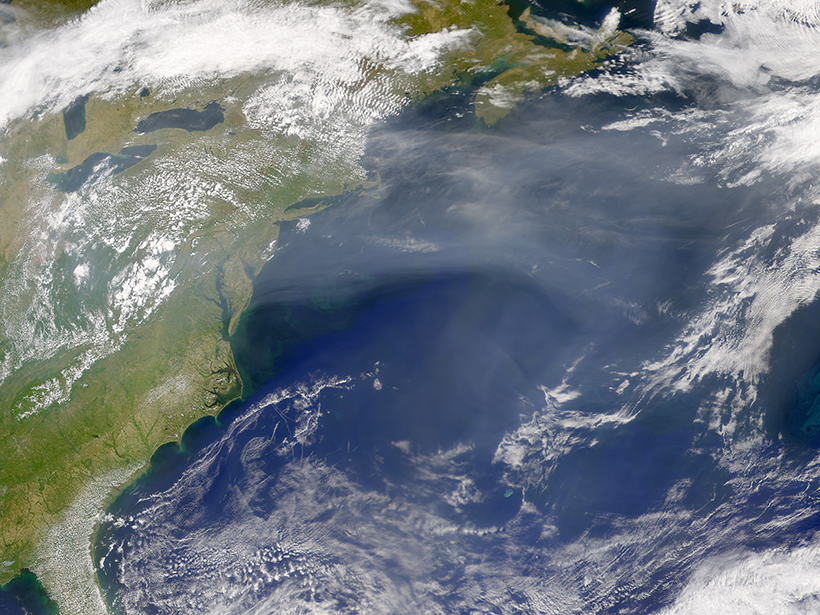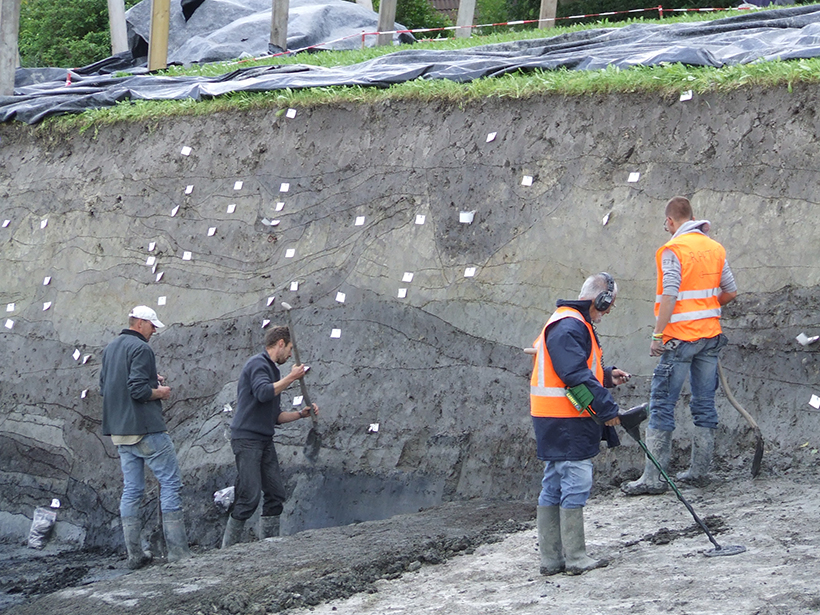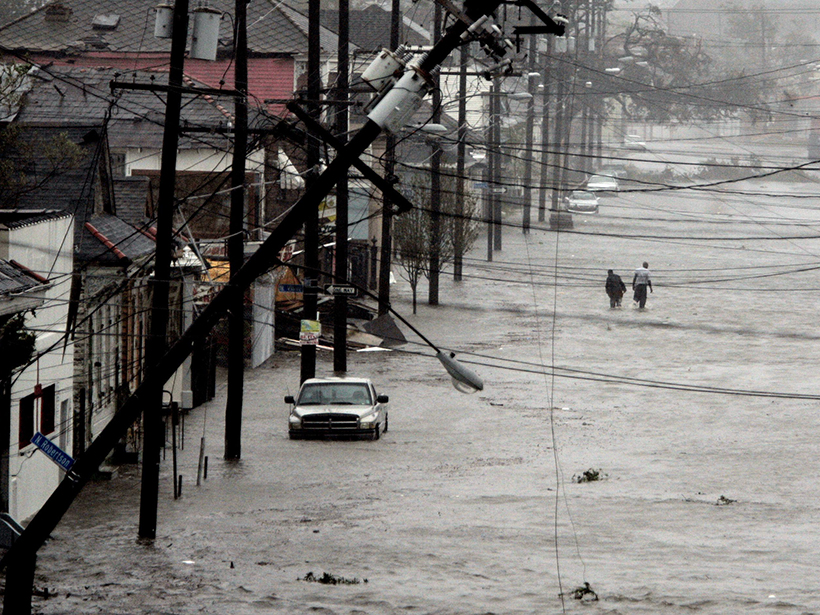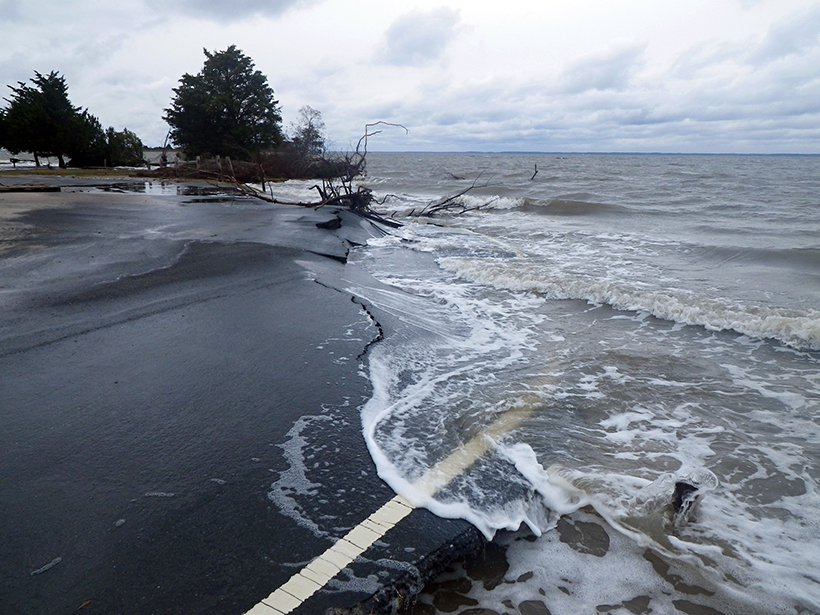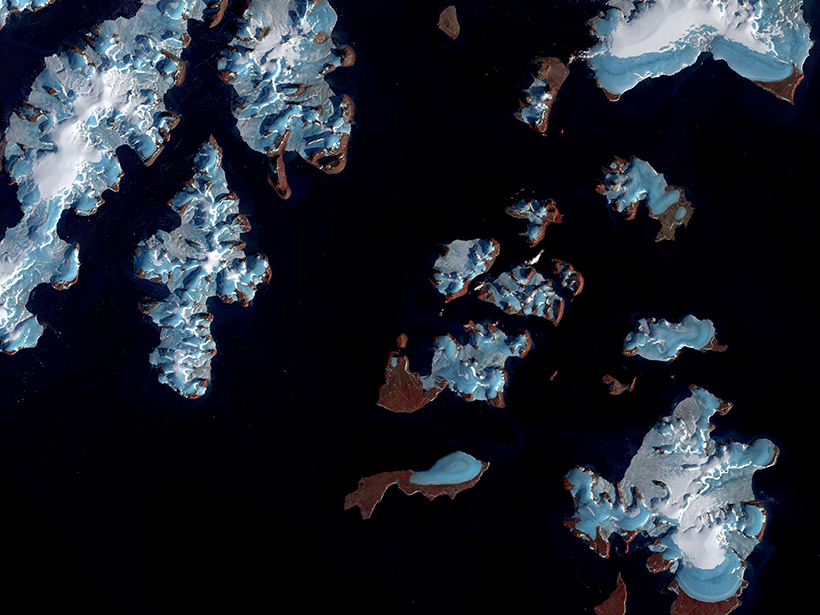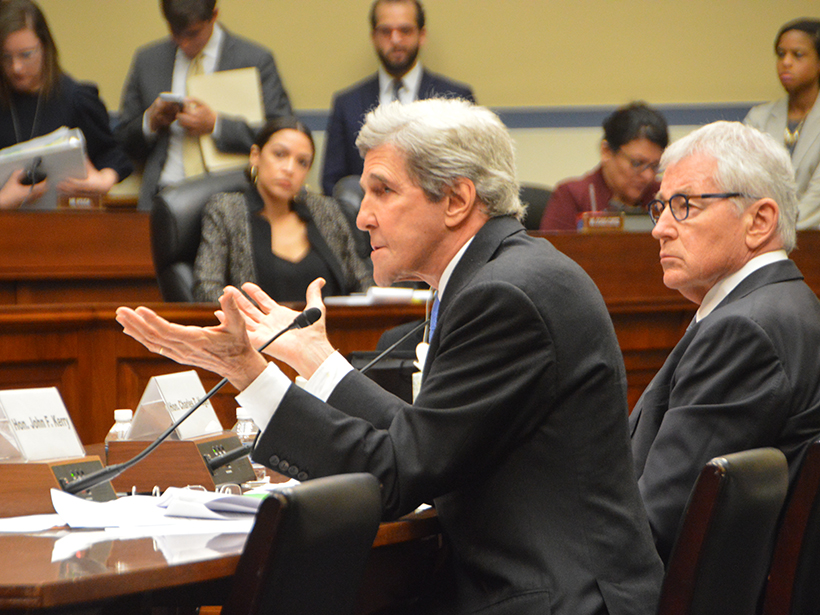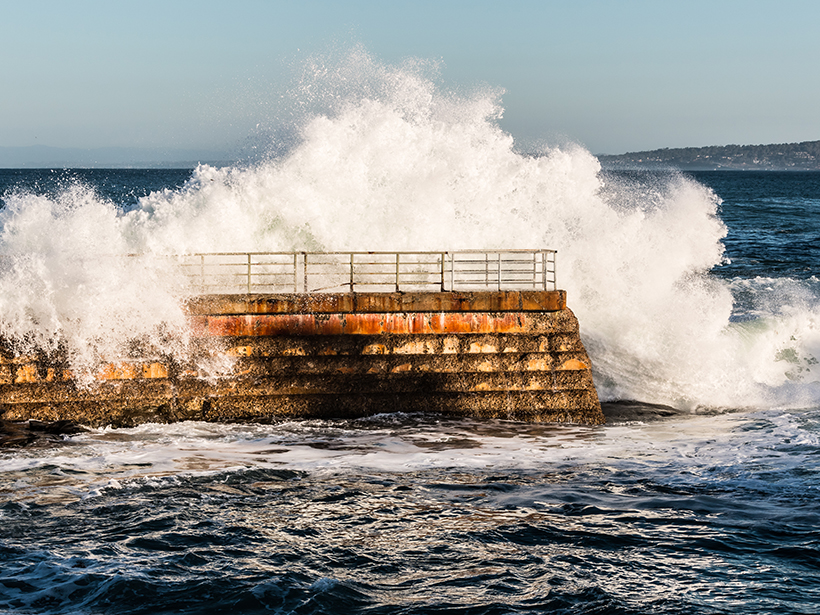Integrating Earth science research and observations into adaptation planning helps identify effective strategies to manage climate risks.
sea level change
Scientists and Planners Face Challenge of Rising Seas
NASA Sea Level Change Team Meeting; Annapolis, Maryland, 11–13 March 2019
Demystifying Sea Level Changes Along the New England Coast
No direct causal connection exists between coastal sea level changes and the strength of the North Atlantic’s overturning circulation, according to new, longer-term observational records.
Sea Level Rise May Reactivate Growth of Some Reef Islands
Reconstruction of reef island formation in the Maldives suggests the possibility that not all islands will shrink as climate change progresses.
Historic Solutions to Sea Level Rise May Help Modern Communities
Earthen mounds helped ancient Dutch settlers thrive in coastal flood zones. Could historical engineering help us fight against rising seas?
As Sea Levels Rise, Expect More Floods
A new study unveils the increasing exposure of coastal communities to minor and extreme floods as sea levels rise.
Meeting User Requirements for Sea Level Rise Information
A new framework based on decision analysis can help scientists produce practical data that support informed decisions about climate adaptations.
Fast-Melting Mountain Glaciers Speed Up Sea Level Rise
Satellites spy on remote alpine glaciers, producing more accurate—and higher—estimates of ice loss over time.
Fireworks at Hearing on Climate Change and National Security
A Republican committee member hits former secretary of state John Kerry with an ill-informed charge of pseudoscience.
Ocean Warming Resumes in the Tropical Pacific
The discovery of a decadal El Niño–like state associated with shifts in the Pacific trade winds could have important implications for predicting sea level in future decades.



